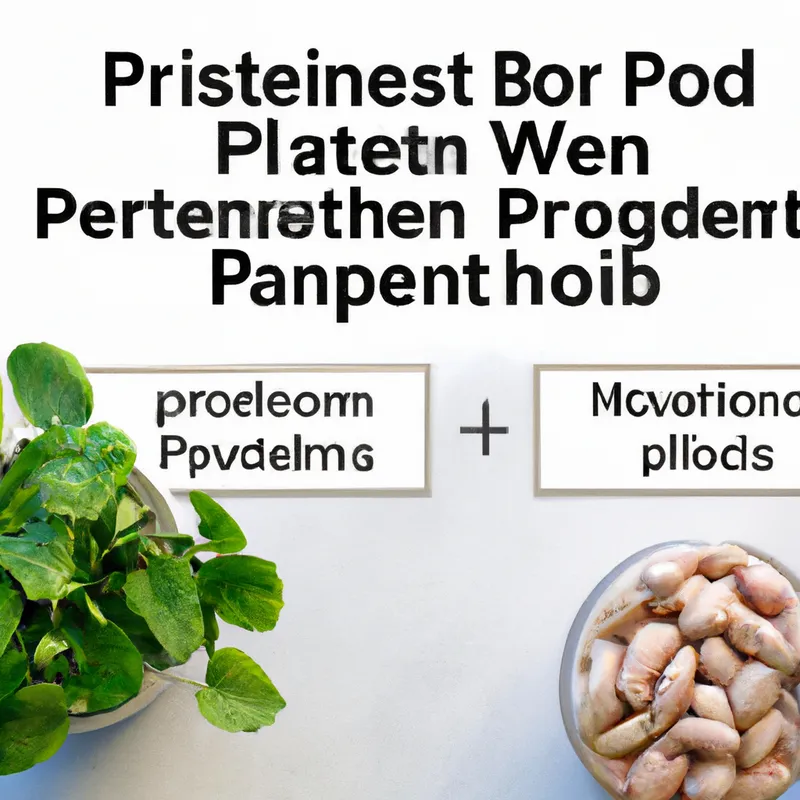Select the Best Plant-Based Proteins for Weight Loss
How to Choose the Right Plant-Based Protein for Weight Loss
Transitioning to a plant-based diet significantly impacts your weight loss journey. Not all plant-based proteins offer the same benefits. Selecting the right type helps you reach your goals effectively. This guide teaches you how to choose the best plant-based protein for weight loss.
Understand Your Protein Needs
Determine your individual protein needs before exploring plant-based proteins. The average adult needs about 0.8 grams of protein per kilogram of body weight. To calculate this, divide your weight in pounds by 2.2, then multiply by 0.8. For example, someone weighing 150 pounds (approximately 68 kg) needs about 54 grams of protein daily.
Increasing your protein intake can benefit weight loss. Research shows higher protein diets reduce appetite and promote fat loss while preserving muscle mass. If you engage in strength training, you may need more protein to support recovery and growth. Active individuals generally require 1.2 to 2.0 grams of protein per kilogram of body weight.
Evaluate Protein Quality
Not all plant proteins provide equal benefits. Some proteins contain all essential amino acids, while others lack one or more. Complete proteins, like quinoa, soy, and amaranth, offer all essential amino acids the body cannot produce. Incomplete proteins, like beans, lentils, and nuts, may require pairing with other foods for a complete amino acid profile.
When choosing a protein source, focus on protein quality. High-quality proteins maintain muscle and promote satiety, which is crucial for weight loss. Combine different plant proteins to ensure a complete amino acid profile. For instance, pair rice with beans or hummus with whole grain pita for a balanced source.
Check the Nutritional Profile
Examine the nutritional profile when selecting plant-based protein. Look for options low in calories but high in protein. This combination helps you stay full while managing caloric intake. For example, a serving of lentils contains about 18 grams of protein and only around 230 calories, making it an excellent weight loss option.
Consider the fiber content in your protein sources. High-fiber proteins, like chickpeas and lentils, enhance digestion and prolong feelings of fullness. Fiber aids in weight management, supports heart health, and stabilizes blood sugar levels. Including more fiber in your diet increases satisfaction and reduces unnecessary snacking.
Explore Different Sources of Plant-Based Proteins
Several plant-based protein sources can aid in weight loss. Here are some popular options:
1. Lentils
2. Chickpeas
3. Quinoa
4. Tofu
5. Tempeh
6. Edamame
7. Nuts and seeds
Conclusion
Choose the right plant-based protein to support weight loss and overall health. Focus on quality, nutritional profile, and variety to achieve your goals.
Below are related products based on this post:
FAQ
What are the protein needs for individuals on a plant-based diet?
The average adult needs about 0.8 grams of protein per kilogram of body weight. To determine your specific needs, divide your weight in pounds by 2.2, then multiply by 0.8. Active individuals and those who engage in strength training may require between 1.2 to 2.0 grams of protein per kilogram to support recovery and muscle growth.
How can I ensure I get a complete amino acid profile from plant-based proteins?
To obtain a complete amino acid profile from plant-based proteins, focus on consuming a variety of protein sources. Complete proteins like quinoa, soy, and amaranth contain all essential amino acids. Incomplete proteins, such as beans and lentils, can be paired with other foods like rice or whole grain pita to ensure you receive all essential amino acids.
What should I look for in the nutritional profile of plant-based proteins for weight loss?
When evaluating plant-based proteins for weight loss, look for options that are low in calories but high in protein. Additionally, consider the fiber content, as high-fiber proteins like chickpeas and lentils enhance digestion and promote feelings of fullness, which can help with weight management and reduce unnecessary snacking.















Post Comment